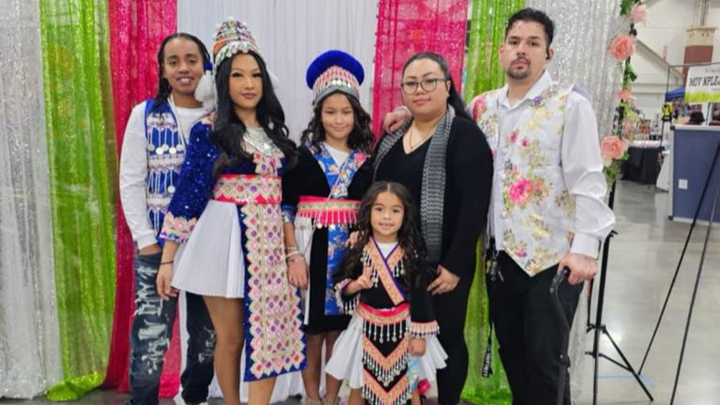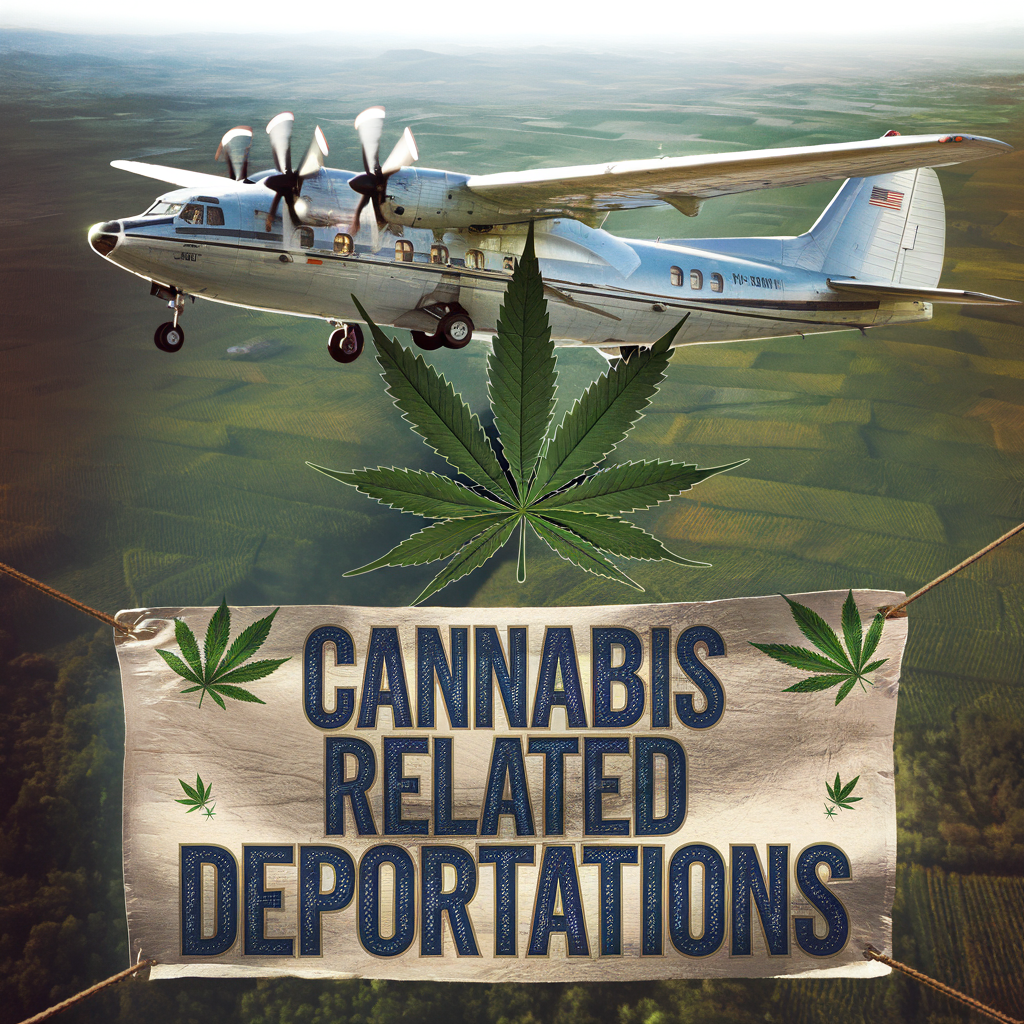Ma Yang, a Milwaukee woman with lifelong ties to America, now finds herself in a country she’s never known – deported to Laos over a marijuana conviction despite having lived in the United States since infancy. Her case illuminates the devastating intersection of America’s cannabis policies and immigration enforcement, creating a humanitarian crisis that advocates say demands urgent reform.
A Life Uprooted: From Milwaukee to Exile
Ma Yang’s story begins not in Laos, but in a Thai refugee camp where she was born in 1988 to Hmong parents fleeing war-torn Southeast Asia. At just eight months old, Yang arrived in America, building a life in Milwaukee that spanned nearly four decades. Despite her legal permanent resident status and deep American roots, Yang now navigates life in Vientiane, Laos – a country where she has no family connections, cannot speak the language, and lacks even basic identification documents.
“The United States sent me back to die,” Yang said about her deportation. These aren’t empty words – Yang suffers from diabetes and hypertension, with her supply of life-saving medications rapidly dwindling in a country where she has no established healthcare access.
Yang’s deportation on March 6, 2025, came after she was detained during what should have been a routine check-in with Immigration and Customs Enforcement (ICE) in February. For her partner of 16 years, Michael Bub, and their five children, Yang’s absence creates an unfillable void in a family suddenly torn apart by immigration policies that critics describe as draconian and disproportionate.

All of this, as Yang had only recently begun to rebuild her life after her 2020 conviction and subsequent 30-month prison sentence. Since her deportation, her partner, Michael, has set up a gofundme to help in Yang’s efforts to return to her family, and the only home she’s ever known.
The Hmong Experience in America
Yang’s deportation carries particular weight within the context of Hmong American history. The Hmong people, originally from southwestern China, faced persecution that drove them southward into Vietnam and Laos over centuries. During the Vietnam War, the CIA recruited many Hmong as part of what became known as the “Secret Army” to fight against North Vietnamese forces who had invaded Laos.
After the war, many Hmong refugees, including Yang’s family, fled to Thailand before resettling in the United States. This complex history makes Yang’s deportation to Laos particularly jarring – she belongs to an ethnic group that assisted American military objectives, only to have America later exile her to a country historically hostile to her people.
Cannabis Conviction Triggers Immigration Nightmare
Yang’s deportation stems from her arrest for marijuana trafficking charges. She was one of 26 people implicated in an operation that involved mailing cannabis to California. After pleading guilty, Yang served her 30-month prison sentence—punishment she completed—believing she had paid her debt to society.
“I made a mistake and I know that I was wrong,” Yang acknowledges. “But I served the time for it already.”
While incarcerated, Yang’s green card was revoked. Upon release, she signed deportation documents in exchange for being released from detention. Her attorney reportedly told her the conviction wouldn’t impact her immigration status, though her defense lawyer later disputed this account, stating his notes showed he had warned her deportation “could happen” though he didn’t believe it “would happen.”
The Cannabis Deportation Pipeline
Yang’s case highlights a troubling contradiction in American policy. As states increasingly legalize recreational marijuana use, federal immigration law continues treating cannabis offenses as deportable crimes – even in states where such activities are legal for citizens.
A recent report by Human Rights Watch and the Drug Policy Alliance revealed approximately 500,000 people were deported between 2002 and 2020 with drug offenses as their most serious violation. This enforcement disparity creates a two-tiered system where citizens face minimal consequences for cannabis-related activities that can permanently exile those with visas and green cards.
“The uniquely American combination of the drug war and deportation machine work hand in hand to target, exclude, and punish noncitizens for minor offenses—or in some states legal activity—such as marijuana possession,” explains Maritza Perez Medina, director of federal affairs at the Drug Policy Alliance.
Life in Limbo: Trapped in a Foreign Land
Yang’s current situation in Laos embodies the humanitarian crisis created by America’s cannabis deportation policies. Upon arrival, Laotian military authorities confiscated her documentation, leaving her essentially stateless. “How do I rent or buy anything with no papers?” Yang questions. “I’m nobody right now.”
This situation is particularly unusual because Laos typically doesn’t cooperate with U.S. deportation orders. Federal data indicates the U.S. didn’t deport anyone to Laos in the previous fiscal year, making Yang’s case an unexpected departure from normal practice. According to ICE data, over 4,800 Lao nationals currently live in the U.S. with removal orders, including Hmong, Mien, and other ethnic minority communities.
Yang finds herself trapped in an Orwellian nightmare – exiled to a country where she lacks cultural connections, linguistic skills, and even the most basic necessities for survival. Her deportation, fundamentally linked to cannabis policies that have evolved dramatically in recent years, raises profound questions about proportionality and humanitarian considerations in immigration enforcement.

Cannabis Deportation: A Systemic Issue With Growing Implications
Yang’s deportation doesn’t exist in isolation. It reflects broader tensions between evolving state cannabis laws and unchanging federal immigration policies. Research examining this relationship found 7,739 immigration arrests and 48,015 deportations referencing cannabis possession between 2009 and 2020.
Interestingly, states that adopted recreational cannabis legalization (RCL) showed moderate decreases in cannabis-related deportations compared to non-RCL states, though arrest rates remained relatively unchanged. This suggests that while state-level cannabis reforms may offer some protection against deportation, federal immigration enforcement continues targeting non-citizens for cannabis offenses.
The current administration’s influence on deportation policy appears significant in Yang’s case. Her green card revocation and subsequent deportation align with campaign promises to expel “millions and millions” of immigrants. The timing of her deportation – occurring during the administration’s renewed focus on immigration enforcement – further suggests political motivations behind her removal.
The Human Cost of Cannabis Deportation Policies
Yang’s deportation inflicts cascading trauma across her family and community. Her five children now face life without their mother, while Yang struggles with medical conditions that could become life-threatening without proper care.
The emotional toll extends beyond immediate family members. For the broader Hmong American community – approximately 300,000 people nationwide – Yang’s deportation sends a chilling message that even those with lifelong U.S. ties remain vulnerable to exile over cannabis offenses.
Community Response and Support Efforts
Advocacy organizations increasingly call for comprehensive immigration reforms that would give judges discretion to consider individual circumstances – including family ties, community connections, and humanitarian concerns – when evaluating deportation cases. Without such reforms, thousands more families risk separation through cannabis deportation, even as societal attitudes toward marijuana continue evolving.
Beyond Ma Yang’s Case
Ma Yang’s deportation represents a profound failure of American immigration and drug policies to evolve in tandem. As cannabis legalization advances across the country, the federal government continues enforcing outdated laws that disproportionately harm immigrant communities, deporting tens of thousands for possession of cannabis.
Yang’s case demonstrates how cannabis deportation creates humanitarian crises that extend far beyond punishment for the original offense. By sending a 37-year-old mother with chronic health conditions to a country she’s never known, America’s immigration system raises serious questions about proportionality, compassion, and fundamental human rights.
As policymakers debate immigration and cannabis reforms, stories like Yang’s highlight the urgent need for cohesive approaches that recognize the changing legal landscape around marijuana while protecting vulnerable immigrant communities from life-shattering consequences for offenses that increasingly aren’t even crimes for U.S. citizens.
Until then, Ma Yang and thousands like her remain caught between America’s evolving cannabis attitudes and its unyielding deportation machinery – casualties of contradictory policies with devastating human consequences.

***
Trap Culture is the ultimate destination for cannabis enthusiasts who want to experience the best of Arizona’s cannabis culture. Whether you are looking for the hottest cannabis-friendly events, the latest news on cannabis legalization, trends in the industry and exclusive, limited-edition products from the top brands in the market, Trap Culture has you covered. Visit our website to learn more about our events, our blog, and our store. Follow us on social media to stay updated on the latest news and promotions. Join the Trap Culture family and experience the most immersive and engaging social cannabis events in Arizona.
Follow us on social media




